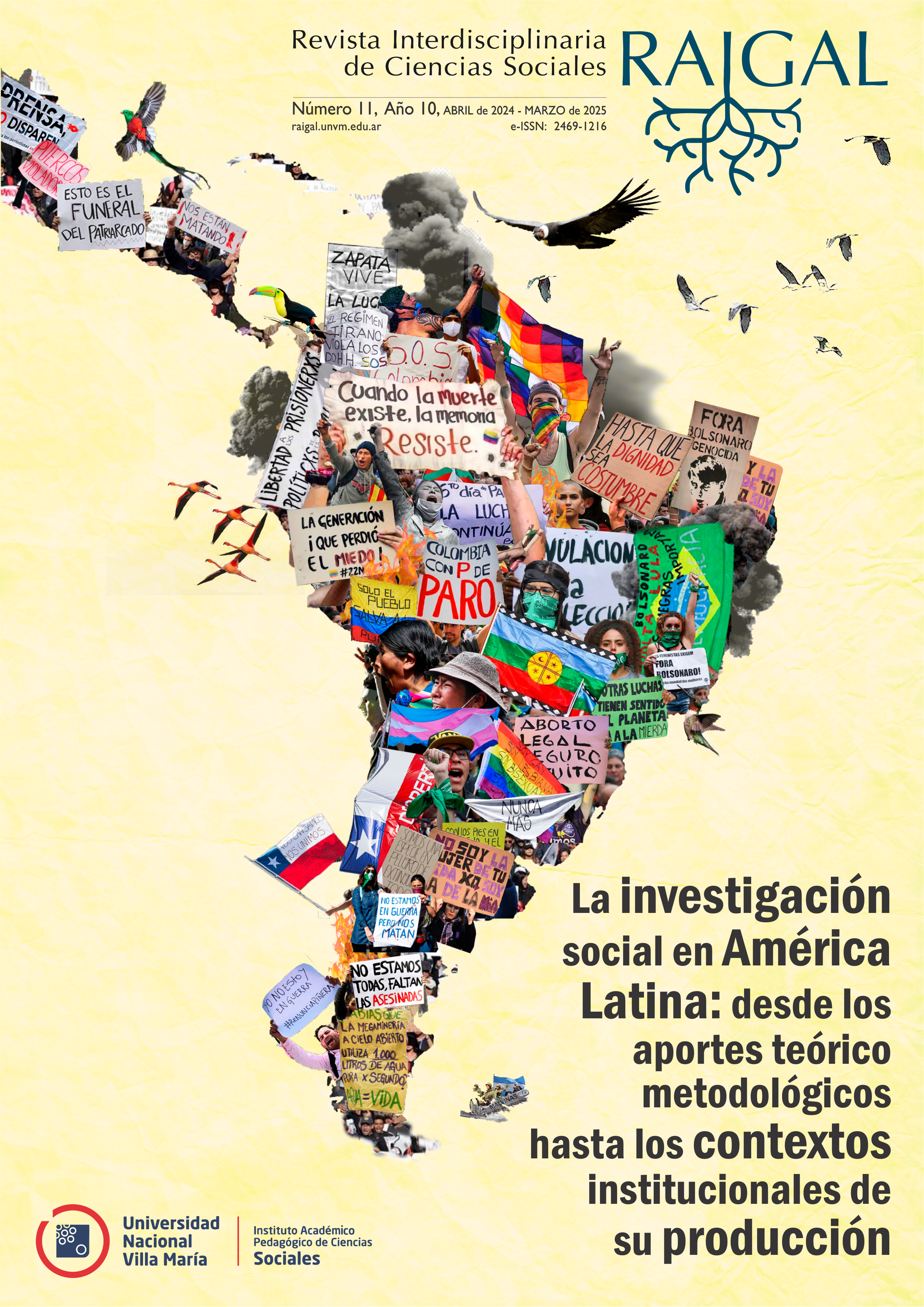The internal governance of cooperative enterprises and the self-management of community capital
a critical reading of the traditional economic approach
Abstract
The paper presents a critical analysis of the main lines of research that have emerged from Organizational Economics (OE) to study the internal governance (IG) processes of the cooperative enterprise (CE). The methodological debate on self-management is exposed from the confrontation of two competing agendas: the first, representative of traditional economic thought, develops a pessimistic reading of the democratic organizational model, while the second, from a synthesis of alternative contributions, proposes to address the endogenous mechanisms of IG that contribute to the successful management of CIs.
First, we systematize the arguments of the traditional perspective to dismiss the democratic administration of collective resources in CEs and then interpret the theoretical trajectory of this program from the epistemological and methodological implications of the adoption of a scientific metaphor built around the tragedy of the commons.
Finally, we analyze a body of work that evidences the capacity of cooperativists to endow the CE with successful IG mechanisms. By giving CEs a license to exist, these approaches promote a necessary change in the scientific metaphor used by OE to address self-management.
Keywords:
Organizational Economics - cooperative enterprises - self-management - organizational social capital – trustLicense
Copyright (c) 2025 Juan Munt, Gonzalo Carrión

This work is licensed under a Creative Commons Attribution 4.0 International License.
Downloads
References
Alchian A. y Demsetz H. (1972). Production, Information Costs and Economic Organization. The American Economic Review, (62), 777-795.
Alchian, A. y Demsetz, H. (1973). The property right paradigm. The journal of economic history, 33(1), 16-27.
Alves, G. (2012). Empleo, remuneraciones e inversión en cooperativas de trabajadores y empresas convencionales: nueva evidencia para Uruguay. Recuperado de: https://www.colibri.udelar.edu.uy/jspui/handle/20.500.12008/4239
Borzaga, C. y Sacchetti, S (2015). Inclusive governance in non-profit organisations. Recuperado de: http://www.siecon.org/online/en/convegni/7113-2/
Bruni L. 2008, El Precio de la gratuidad. Madrid: Ciudad Nueva.
Bruni, L. (2010). The happiness of sociality. Economics and eudaimonia: A necessary encounter. Rationality and society, 22(4), 383-406.
Bruni, L. y Sugden, R. (2005). Los canales morales: la confianza y el capital social en la obra de Hume, Smith y Genovesi. Cultura económica (62), 51-70.
Bruni, L., y Zamagni, S. (2007). Economía civil: eficiencia, equidad, felicidad pública. Buenos Aires, Argentina: Prometeo Libros.
Burdin D. y Dean D. (2008). ¿Por qué existen pocas empresas gestionadas por sus trabajadores?, Quantum, 3(1), 87.
Colleman, J. (1990). Foundations of social theory. Cambridge, UK: Harvard University Press.
Demsetz, H. (1983). The structure of ownership and the theory of the firm. The Journal of law and economics, 26(2), 375-390.
Demsetz, H. (1997). La economía de la empresa. En: O. Williamson y S. Winter (coords.), La naturaleza de la empresa: orígenes, evolución y desarrollo (pp. 220-247). México: FCE.
Demsetz, H., Williamson, O. y Winter, S. (2000). The theory of the firm revisited. The Theory of the firm. Critical perspectives on business and management, 102-122.
Dow, G. y Putterman, L. (2000). Why capital suppliers (usually) hire workers: What we know and what we need to know. Journal of Economic Behavior & Organization, 43(3), 319-336.
Ellerman, D. (1986). Horizon problems and property rights in labor-managed firms. Journal of Comparative Economics, 10(1), 62-78.
Fama, E. y Jensen, M. (1983). Separation of ownership and control. The journal of law and Economics, 26(2), 301-325.
Furubotn, E. (1976). El análisis a largo plazo de la empresa gestionada por mano de obra: una interpretación alternativa. The American Economic Review, 66 (1), 104-123.
Furubotn, E. y Pejovich, S. (1972). Property rights and economic theory: a survey of recent literature. Journal of economic literature, 10(4), 1137-1162.
Hansmann, H. (1999). Cooperative firms in theory and practice. Finish Journal of Business Economics, 48(4), 387-403.
Jacobson, R. (1992). Public limited companies and co-operative principles in Ireland's dairy sector. Journal of Agricultural Cooperation, 7, 52-60.
Jensen, M. y Meckling, W. (1976). Theory of the firm: Managerial behavior, agency costs and ownership structure. Journal of financial economics, 3(4), 305-360.
Menzani, T. y Zamagni, V. (2010). Cooperative networks in the Italian economy. Enterprise & Society 11(1), 98-127.
Milgrom, P y Roberts J. (1992). Economics, organization and management. New York: Editorial Pearson.
Miller Moya, L. (2007). Coordinación y acción colectiva. Revista Internacional de Sociología, Vol. 16, N°. 46. 161-183.
Myers, S. (1984). The capital structure puzzle. The journal of finance, 39(3), 574-592.
Myers, S. y Majluf, N. (1984). Corporate financing and investment decisions when firms have information that investors do not have. Journal of financial economics, 13(2), 187-221.
Navarra, C. (2011). Profit reinvestment in Italian worker cooperatives as a contribution to a common good: an empirical analysis on workers' perception and motivation. Advances in the Economic Analysis of Participatory and Labor-Managed Firms, 199-211.
Ostrom, E (2003). Toward a Behavioral Theory Linking Trust, Reciprocity, and Reputation. En: E. Ostrom y J. Walker (eds.), Trust & Reciprocity. Interdisciplinary Lessons from Experimental Research (pp. 19-79). New York: Russell Sage Foundation.
Ostrom, E. (1990). El gobierno de los bienes comunes. La evolución de las instituciones de acción colectiva. México: Universidad Nacional Autónoma de México, Centro Regional de Investigaciones Multidisciplinario.
Ostrom, E., Gardner, R. y Walker, J. (1994). Rules, games, and common-pool resources. Michigan, USA: University of Michigan Press.
Pereira J. y Cardoso Cançado A. (2018). Gestão Social de Cooperativas. Curitiva: Appris editora.
Perilleux, A. y Nyssens, M. (2018). Understanding cooperative finance as a new common. Annals of Public and Cooperative Economics, 88(2), 155-177.
Porter, P, y Scully, G. (1987). Economic efficiency in cooperatives. The Journal of law and economics, 30 (2), 489-512.
Putnam, R. (2000). Comunidade e Democracia: a experiência da Itália Moderna. Río de Janeiro, Brasil: Editorial Fundación Getúlio Vargas.
Rossler, G. (2017). Una aproximación al concepto de autogestión desde sus múltiples dimensiones y significados. XXI Encuentro de Jóvenes Investigadores de la Universidad Nacional del Litoral, Facultad de Humanidades y Ciencias, Santa Fe.
Runge, C. (1981). Common property externalities: isolation, assurance, and resource depletion in a traditional grazing context. American journal of agricultural economics, 63(4), 595-606.
Sabatini, F., Modena, F. y Tortia, E. (2014). Do cooperative enterprises create social trust?. Small Business Economics, 42(3), 621-641.
Sacchetti S. y Tortia, E. (2012). The internal and external governance of cooperatives: Management. Recuperado de: https://www.researchgate.net/publication/254448451_The_internal_and_external_governance_of_cooperatives_the_effective_membership_and_consistency_of_value
Sacchetti, S., y Tortia, E. (2020). Governing cooperatives in the context of individual motives. International Journal of Social Economics, Vol. 48 No. 2, 181-203.
Salazar Terreros I., y Galve Górriz C. (2007). Empresa Cooperativa vs. Empresa Capitalista. ¿Afecta la forma organizativa la eficiencia productiva? Revista Europea de Dirección y Economía de la Empresa, N°17. 133-144.
Sen, A. (1987). Sobre ética y economía. Madrid: Editorial Alianza.
Tirole, J. (1996). A theory of collective reputations (with applications to the persistence of corruption and to firm quality). The Review of Economic Studies, 63(1), 1-22.
Tirole, J. (2017). La Economía del bien común. Madrid: Penguin Random House Grupo Editorial.
Tortia, E. (2018). The Firm as a Common. Non-Divided Ownership, Patrimonial Stability and Longevity of Co-Operative Enterprises. Sustainability, 10(4), 1023.
Williamson, O. (1979). Transaction-cost economics: the governance of contractual relations. The journal of Law and Economics, 22(2), 233-261.
Williamson, O. (1993). Calculativeness, trust, and economic organization. The journal of law and economics, 36 (1, Part 2), 453-486.
Zamagni S. (2008) Reciprocity, Civil Economy, Common Good. En: M. Archer y P. Donati (eds.), Pursuing the Common Good: How Solidarity and Subsidiarity Can Work Together (pp. 467-502), Vatican City: The Pontifician Academy of Social Sciences.
Zamagni V. (2016). Perché il neoliberismo non è sostenible. Quaderni di Economia del Lavoro, 106/2016
Zamagni, S. et al. (1999). Social paradoxes of growth and civil economy. En: G. Gandolfo y F. Marzano, Economic theory and social justice (pp. 212-250). London: Palgrave Macmillan.
Zamagni, S. (2004). Desarrollo sustentable, la lucha contra la pobreza y las nuevas estructuras de gobierno en la era de la globalización. Cultura económica, (60), 16-35.
Zamagni, S. (2005). A civil-economic theory of the cooperative enterprise. Documentos de Trabajo. Bologna: University of Bologna.
Zamagni, S. (2006). Heterogeneidad motivacional y comportamiento económico: la perspectiva de la economía civil. Madrid: Editorial Unión.
Zamagni, S. (2012). Por una economía del bien común. Madrid: Ciudad Nueva.
Zamagni, S. (2014). Bienes comunes y economía civil. Revista Cultura económica, 32(87), 8-25.
Zamagni, S. (2021). ¿Qué tipo de gobernanza para la economía global?. Cuestiones Teológicas, 48(109), 164-173.
Zamagni, S. y Zamagni, V. (2010). Cooperative enterprise: Facing the challenge of globalization. Cheltenham: Edward Elgar Publishing.






 We are indexed ...
We are indexed ...





